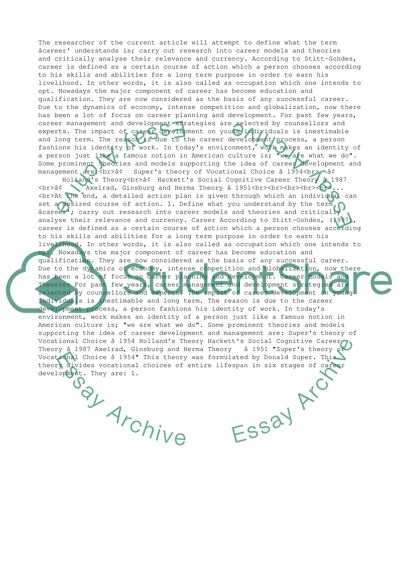Cite this document
(“Career Management Essay Example | Topics and Well Written Essays - 2250 words”, n.d.)
Retrieved from https://studentshare.org/business/1394700-career-management
Retrieved from https://studentshare.org/business/1394700-career-management
(Career Management Essay Example | Topics and Well Written Essays - 2250 Words)
https://studentshare.org/business/1394700-career-management.
https://studentshare.org/business/1394700-career-management.
“Career Management Essay Example | Topics and Well Written Essays - 2250 Words”, n.d. https://studentshare.org/business/1394700-career-management.


